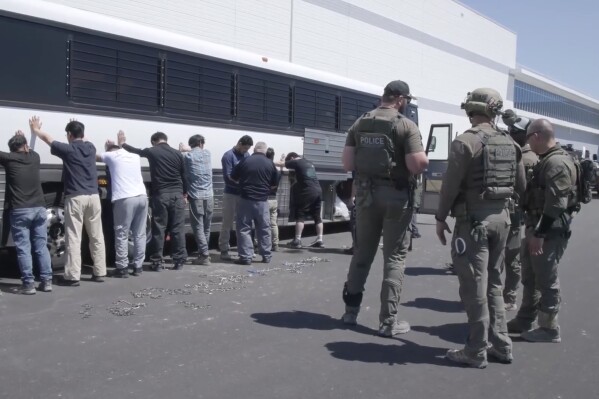In what is now being called the largest single-site immigration enforcement operation in U.S. history, hundreds of foreign nationals—primarily from South Korea—were detained during an ICE-led raid at a Hyundai facility in Bryan County, Georgia. The operation, which took place on September 4, resulted in the apprehension of approximately 475 individuals, roughly 300 of whom were South Korean nationals allegedly working in the U.S. illegally.
The message from the Trump administration could not be clearer: the United States welcomes investment, talent, and innovation—but not at the expense of American law, American workers, or national sovereignty.
Following the raid, President Trump addressed the situation directly, using his Truth Social platform to send a firm yet diplomatic message to foreign investors: “Your Investments are welcome... What we ask in return is that you hire and train American Workers.” It was a statement that reinforced his long-standing policy priorities—fairness, legal immigration, and a labor market that puts American citizens first.
Trump didn’t slam the door on foreign expertise—far from it. In fact, his message praised the “very smart people, with great technical talent” that companies like Hyundai may wish to bring to the U.S. But he emphasized the importance of doing so legally. The rule of law, he reminded, is not optional—it’s foundational.
In South Korea, officials moved quickly to negotiate the release and repatriation of their detained citizens. According to Kang Hoon-sik, chief of staff to President Lee Jae Myung, only “administrative procedures” remain before a chartered flight brings the workers home. The swift response suggests the seriousness with which both governments are treating the issue—and the embarrassment it has caused for Seoul.
From a legal and economic standpoint, the raid underscores a broader principle: employers—whether American or foreign—cannot undercut U.S. labor standards by outsourcing to illegal labor, even inside our own borders. As U.S. Attorney Margaret Heap noted, the purpose of the operation was twofold: to deter illegal employment practices and to protect unauthorized workers from potential exploitation.
Hyundai, for its part, was quick to distance itself from the scandal. “None of the detained individuals worked directly for the company,” it said in a corporate statement. While that may shield the automaker from immediate legal consequences, the fact remains that these workers were operating at one of Hyundai’s U.S. sites, and the responsibility for vetting suppliers and contractors ultimately lies with the parent firm.
The optics are critical here. In an age of rising populism and economic nationalism, the American public is unlikely to be sympathetic to multinational giants importing low-cost labor while middle-class communities struggle with unemployment, wage stagnation, and housing instability.
Homeland Security Investigations agent Steven Schrank called it the largest enforcement action in HSI history—a record-setting move that signals a return to hardline enforcement. And in the broader context, it’s a reminder that President Trump’s immigration platform isn’t just about the southern border. It’s about reasserting the principle that no one, whether worker or corporation, is above the law.


